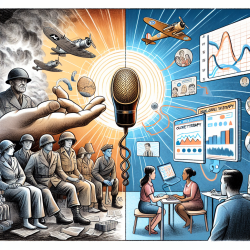The world has witnessed numerous environmental public health disasters that have left indelible marks on communities and ecosystems. From Chernobyl to the World Trade Center collapse, these events have provided valuable lessons in epidemiology and public health interventions. For practitioners in fields such as online therapy services, understanding these lessons can significantly enhance their skills and effectiveness in disaster recovery scenarios.
The Power of Simple Study Designs
The Bhopal disaster in 1984 highlighted the efficacy of simple study designs in understanding long-term health impacts. Despite the challenges posed by political and infrastructural inadequacies, a cross-sectional epidemiologic study was successfully conducted. This approach demonstrated that even with limited resources, meaningful insights could be gained into the health effects of toxic exposures. Practitioners can take away that sometimes simplicity is key, and straightforward methodologies can yield significant results.
Public Health Interventions as Catalysts for Longitudinal Studies
The Chernobyl disaster underscored the importance of public health interventions in facilitating longitudinal studies. By leveraging existing public health surveillance systems, researchers were able to gather extensive data over time without incurring prohibitive costs. This approach illustrates how practitioners can use existing frameworks to build comprehensive studies that track health outcomes over extended periods.
Ecological Epidemiology: A Complementary Approach
Chernobyl also taught us the value of ecological epidemiology as a complementary approach to human studies. By examining sentinel species such as birds and butterflies, researchers could infer potential human health risks associated with radioactive exposure. This method provides a cost-effective way to gather data while avoiding some of the biases inherent in human studies. Practitioners can consider integrating ecological assessments into their research to gain a broader understanding of environmental impacts.
The Importance of Community Engagement
The Graniteville train derailment in South Carolina highlighted the critical role of community engagement in overcoming selection biases and building trust. By involving the community in research activities and public health planning, researchers were able to foster collaboration and ensure higher participation rates. For practitioners, this underscores the necessity of engaging with affected communities to enhance study reliability and effectiveness.
A Call for Further Research
The lessons from these disasters provide a foundation for improving public health responses and practitioner skills. However, there is always room for further research. Practitioners are encouraged to delve deeper into these case studies and explore innovative methodologies that can be applied to future environmental disasters.
To read the original research paper, please follow this link: Epidemiologic Methods Lessons Learned from Environmental Public Health Disasters: Chernobyl, the World Trade Center, Bhopal, and Graniteville, South Carolina.










